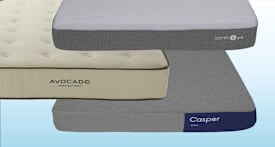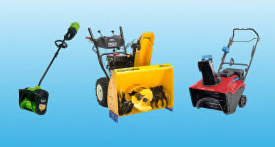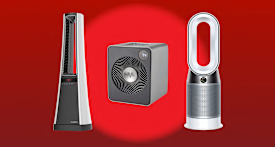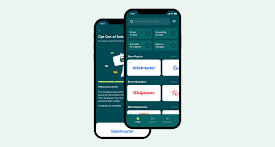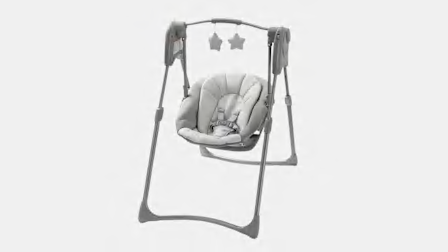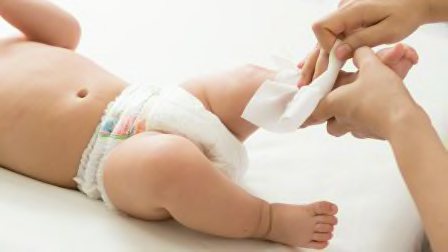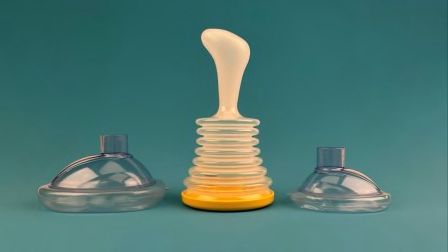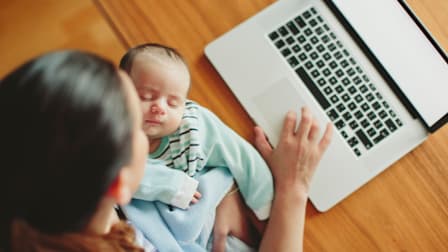“In the interest of safety, we informed selling partners on April 9, 2024, that Amazon will no longer allow the sale of weighted infant sleep products in the Amazon store,” Amazon spokesperson Samantha Boyd wrote to CR. “The American Academy of Pediatrics, the Centers for Disease and Control and Prevention (CDC), the Consumer Product Safety Commission (CPSC) and the National Institutes of Health (NIH) have advised against the use of weighted infant sleep products, and we’ve made this update with customer safety in mind.”
Customers who have previously purchased weighted infant sleep products from Amazon got emails this week telling them that they are unsafe and shouldn’t be used with children under 3 years old. The products haven’t been recalled, and Amazon isn’t offering refunds directly, though it will accept affected product returns.
As of this writing, weighted infant sleep products from many sellers—including Dreamland Baby and Nested Bean—are still widely available. Amazon says that enforcement of the new policy will begin in the coming days.
Target says its policy change will also take effect soon. “Out of an abundance of caution, we have decided to voluntarily stop selling weighted baby sleep products as the industry continues to learn more,” Target spokesperson Jim Joice wrote to CR. “We are in the process of working with vendors and manufacturers of the products, and the items will be removed from our stores and online by the end of the week.”
In addition, the popular baby registry website Babylist also told CR that it no longer sells weighted infant sleep products and that it has published guides discouraging their use.
“We are constantly reevaluating the merchandise we sell based on available industry guidance—we did previously sell these products but no longer do,” a Babylist spokesperson wrote in response to questions from CR.
Walmart and Buy Buy Baby also told CR that they do not sell weighted infant sleep products. On Friday, CPSC commissioner Richard Trumka announced that he had sent letters to several major retailers on April 15 asking them to stop selling weighted infant sleep products, and that several–including Target, Babylist, Walmart, and Nordstrom–had quickly agreed.
While retailers reconsider their safety policies, legislators and regulators are also taking a closer look.
Sen. Blumenthal wrote to FTC chair Lina Khan on Thursday, urging her to open an investigation into Dreamland Baby and Nested Bean to see whether they have engaged in deceptive advertising by depicting their weighted sleep products as safe for babies.
“I ask that the Commission investigate these companies to determine whether any unlawful, unfair, or deceptive advertising practices are taking place and potentially harming millions of families,” Blumenthal wrote in his letter to the FTC. “The stakes are simply too high to allow weighted infant sleep products to be advertised as ‘safe,’ especially without a clear disclaimer explaining the lack of an agreed-upon standard for determining safety.”
In response to CR’s request for comment about Amazon’s policy change, Dreamland Baby’s founder and CEO Tara Williams said that “there is no factual basis for the safety concerns Amazon raised regarding Dreamland Baby’s Weighted Sleep Sack” and that the company was “shocked by this misguided policy change.” She added that the company has initiated a clinical trial with Indiana University that is now underway that she is confident will confirm that these products are safe and effective.
Nested Bean’s founder and CEO, Manasi Gangan, told CR that the company strongly disagrees with Amazon’s decision and that its products are safe. She argued that Nested Bean products, while they have added weight, are significantly lighter than many other products classified as unweighted.
Gangan also addressed questions publicly in an Instagram story Wednesday, assuring customers that the products are not being recalled. “I want you to listen to your health advisors and your own instinct,” she wrote, adding that “safety tests and over 2 million well-rested babies are a testament to our product’s safety.”
CR’s safety experts believe that, given the government and pediatric guidance to stop using these products, and the abundance of safe options for parents to help with sleep, companies should stop selling weighted blankets, sleep sacks, and swaddles for infants. They also praise the retailers that have decided to block sales.
“It’s promising to see companies including Amazon and Target step up and make the right decision, based on the recommendations of medical and safety experts,” says Oriene Shin, policy counsel for Consumer Reports. “Too often, products that contradict clear expert guidance are for sale for years and end up putting babies and children at serious risk. Parents deserve nothing less than products that are proven safe before entering the marketplace. All retailers and online platforms should immediately stop selling these seriously concerning products.”
Editor’s Note: This article was updated to include information received after the original publication about additional retailers that do not sell weighted infant sleep products, and to include an announcement by CPSC commissioner Richard Trumka on this topic that he made after publication.
